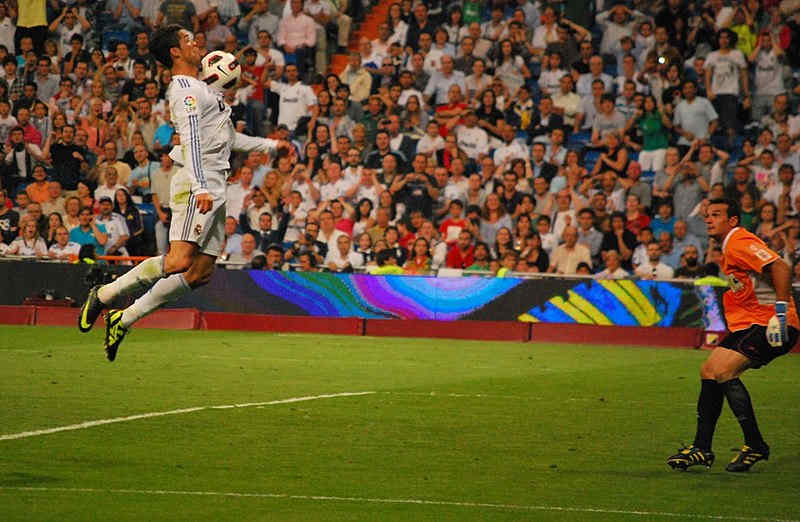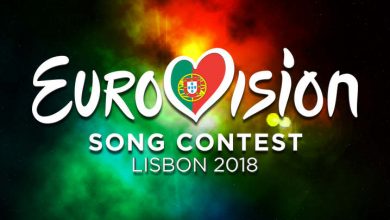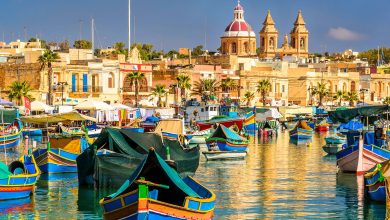Football Is Back! Here’s How It Can Help Europe Bounce Back Against Covid-19

Whether to relief or sadness, excitement or indifference, the football season has started back up. It started on May 20th in Dortmund (vs Schalke), with 300 people in a stadium which ordinarily would have seated over 80,000. It is peeping up its head elsewhere, looking for a restart.
England’s Premier League has received conditional backing to begin again in June under special protocols. The President of Spain’s La Liga, Javier Tabas, has identified June 12th as the earliest date to reopen behind closed doors and contingent on approval by Spanish health authorities. Prime Minister Sanchez upstaged him at time of writing, approving an opening date of June 8th. The 20 teams in Italian Serie A have agreed to resume play on June 13th in empty stadiums. Poland has plans to restart on May 29th, Portugal will resume on May 30th, Austria June 2nd.

Some leagues have closed and have no specific plans for re-opening. The Belgian league was the first to cancel. The French government has cancelled Ligue 1 and declared Paris St. Germain the winner on points. Some clubs are considering challenging the decision. The Dutch government has cancelled all sports until Sept. 1. In Scotland training, and match plays have been suspended.
A National Unifier
Sports is not just about entertainment or escapism, although those certainly play a big part. It’s also an outlet for political tensions, and it can inspire people from different backgrounds to see the value of cooperation. It also acts as a platform for national and international issues, playing a considerable political role. And in the case of football, it is a big one!
This is true on the national level, too, where sports have often been a national unifier, with national teams coming to serve as national symbols. Fans rally behind the national team in hopes of a victory over rival nations. When national teams meet Germany at the World Cup or European Championships, one has the impression that the war is being relived, without guns, in a more peaceful version of historic rivalries. Local rivalries are also played out when club teams meet in the Champions or Europa League. For next year’s 2020-21 season, eligibility will be determined in cases where the season has already been cancelled, by the current league rankings.
In times of international stress, the role of sports is even more important. The 1936 Olympic Games in Germany are still talked about for this reason. The hostage-taking at the 1972 Munich Olympic games focused attention on the Middle East and the raised fists of two American athletes in 1968 at the Olympic games in Mexico solidified the black power movement in the US and gave it further impetus.
From May 1950 until a loss to Turkey on February 19, 1956, the Hungarian national team – the “magnificent Magyars” – amassed a 43 win 6 draw and 0 defeats record, with the sole exception of the 1954 World Cup loss to West Germany. The international prowess of their footballers was a source of pride to Hungarians as they prepared their unsuccessful 1956 revolt against the Soviet Union. In 1980, many Western countries boycotted the Moscow Olympics after the Soviet invasion of Afghanistan.
The more recent French victories in the World Cup (1998, 2018) and the European Championship (1984, 2000), as well as making it to several semi-finals, have provided a platform for the country’s new multi-ethnic identity, as numerous immigrants from former French colonies helped lead the team to victory and were celebrated as national heroes. German and Italian teams that have vied for number one in Europe are said to play with their national character on their shirt sleeves, the well oiled “Mannschaft” being compared to the more individualistic “Azzurri.”
Spanish football was built by Franco at a time when the country didn’t agree on much else. It is still a source of pride and massive revenue. Iceland too achieved something remarkable. The “Strákarnir okkargetting” or “our boys” united the country and gave a boost to tourism by their quarter-final finish in the 2016 European Championship.
Players, Warriors, Princes, And Saints
Star football players are sportsmen- and -women first. They inspire us to run harder, train, and compete. They also play a much deeper psychological role modeling the warriors of old to inspire us in the social struggles we face, and parallels also tie them to ancient princes like the good King Wenceslas of Moravia doling out alms to the poor. Alongside benevolent ruler, the role of a saint, taking up the cause of the poor, although eschewing personal sacrifice, is not far behind. In taking on these various mantels, athletes reassure us of our good intentions, society’s smooth functioning, and the persistence of social cohesion.
Few will have trouble identifying Cristiano Ronaldo’s exploits on the field with those Homeric exploits of Ulysses – if, of course, in a way more fit for modernity. But somewhat less known, Ronaldo was “Most Charitable Sports Figure of 2019”, having achieved this number one ranking several times previously. Along with Maria Sharapova (#8), he is one of two Europeans to make the top ten charitable sports figure list. He is also better known throughout Europe than many presidents.

Other charitable figures, features of the European sports scene, will be well-known to football fans: Neymar Jr. (#5), Didier Drogba, David Beckham, and Craig Bellamy, along with many others. One can question a system that awards some with fortunes they can give away while others struggle to make ends meet but it would be more difficult to question the generosity of these athletes. Unlike high finance, they have exploited no-one but themselves in amassing their fortune.
A figure like Zinedine Zidane, born in Marseille to Algerian parents, the hero of the French 2000 World Cup victory, and four-time Champions’ League victor as coach of Real Madrid, helps serve as a role model for immigrant kids, extending a feeling of common belonging in the immigrant community. Zidane also showed off the role of the saint – or in this case anti-saint – with his infamous headbutt of the Italian Marco Materazzi in the 2006 World Cup final that France went on to lose. Even the French were genuinely shocked. Materazzi had, it was said, insulted Zidane’s mother, raising the incident to another cultural level.
Other social conflicts are played out on the safer terrain of the turf as compared to the street. Families sometimes have divided club loyalties – one could imagine a Neapolitan family where one parent is a supporter of Inter Milan, the team representing the financial center of Italy. The other parent might root for Naples, identifying them as a team representing the city’s poor, and their offspring might join in the youthful enthusiasm for Juventus’ victories. No football match will challenge the power structure in Italy, but football acts as an outlet to those tensions of identity and social cohesion.
When Sports Get Ugly
If sports has an outsized cultural influence, this does not always translate into a positive impact. Drugs, underage prostitution, illegal gambling, match-fixing, and right-wing passions are just some of the principal ugly moments in football that we hope not to see in the remainder of this Corona-truncated season. Teams have been forced before to play to empty stadiums, forgoing enormous revenues, not because of the virus but because of unruly, or even violent fans – even going so far as to violate European law against hate crimes or fascist symbols. Sanctions are applied by UEFA, football’s governing body in Europe.
Homophobic and racist chants, along with Nazi Swastikas, are often at the root of these bans, and often had to occur multiple times before punitive action was even considered. The problem is widespread. Groups called “ultras”, social clubs with several thousand members, and right-wing affiliations, are usually the prime movers in the repeated incidents. Some clubs are more infamous than others for their supporters’ continued far right affiliations – Lazio comes to mind – but no one is exempt. The German player Mesut Özil, who was born in Germany from Turkish parents, plays for Arsenal in the UK and retired from the German national team because of racism last year. Feyenoord, a Dutch team, was fined when fans threw a large inflatable banana at an AS Roma player of Ivorian origin. British fans, hooligans, known previously all over Europe for their drunken riots whenever they played on the continent, have now discovered racism towards many of the Commonwealth and other foreign players in the Premier League, as well as towards adversaries they play on the continent. Incidents of racism in Eastern European football are also commonplace.
It’s Go-Time
For better or worse, the season has begun again and will provide a needed distraction from days laden with news of the virus. Players will be no better or worse than we are – but their exploits will provide a window into European society, its strengths, and its weaknesses. It will fall upon us not to waste that moment of reflection, and make sure we try to do well by doing good: have fun, and change Europe for the better.






Hi Stephen,
Thank you for this article. If I may point out one mistake, though:
From May 1950 until a loss to Turkey on February 19, 1956, the Hungarian national team – the “magnificent Magyars” – amassed a 43 win 6 draw and 0 defeats record.
Hungary did go unbeaten for a very long time – but “only” until the 1954 World Cup Final, when they were odds-on favourites and got beaten by Germany. Trust me on this one 😉 I am German, and that match went down in our collective memory as “Das Wunder von Bern”, or “The Miracle of Berne”.
All the best, stay safe and healthy!
Cheers, Martina
Thanks Martina,
I don’t like making mistakes but when I do I really appreciate a correction! The citation on wins and losses was from Wikipedia and they did mention the West German World Cup victory in parenthesis as the one exception! I like to think someone corrected the Wikipedia original after I quoted it but it is just as likely that I had a lapse and forgot the parenthesis. Thanks again
Best